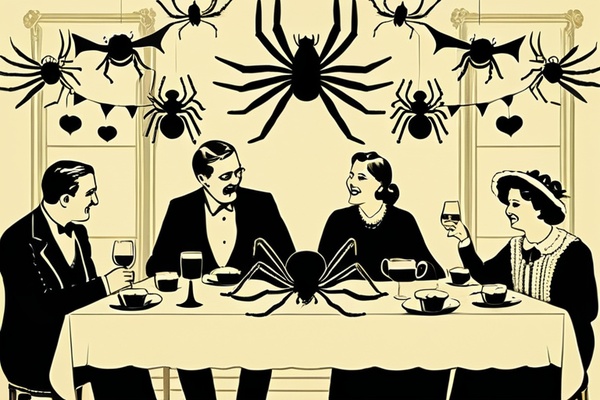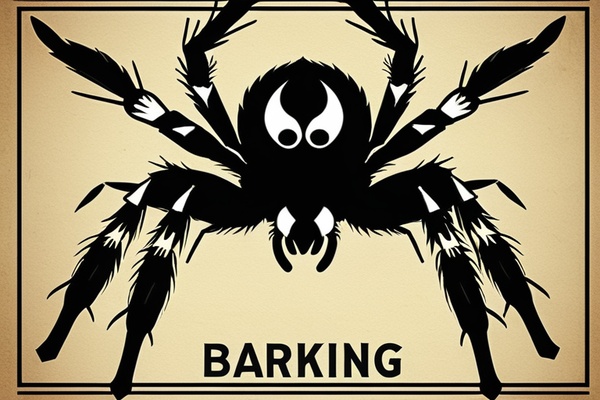
Origin Story
The term "barking spider" was first coined by someone's quick-thinking uncle who needed to explain an unexpected sound at a family gathering.

Natural Habitat
Barking spiders are most commonly "heard" in quiet rooms, elevators, and during important business meetings.

Diet
These spiders seem to be particularly active after consuming beans, Brussels sprouts, and other gaseous foods. Purely coincidental, we're sure.

Sound Production
Unlike real spiders that make sounds through stridulation, barking spiders produce their signature sound through... well, let's just say it's a mysterious process.

Peak Activity
Most active during awkward silences and solemn occasions, showing a remarkable sense of comedic timing.

Social Behavior
Often blamed by humans for unexpected sounds, barking spiders have developed a symbiotic relationship with embarrassed people worldwide.

Scientific Classification
Taxonomists have struggled to classify these creatures, as they seem to exist primarily in the realm of dad jokes and awkward explanations.

Defense Mechanism
When threatened, barking spiders emit their characteristic sound, causing nearby humans to either laugh nervously or leave the room.

Population Distribution
Found worldwide, but particularly common in situations where someone needs a quick excuse for an unexpected noise.

Conservation Status
Despite never being seen, barking spiders are in no danger of extinction as long as humans continue to need convenient explanations for unexpected sounds.
Know More Facts?
Have an interesting barking spider fact to share? Email us at facts@barkingspider.life


